Open Science Blog
All Blog Posts
10 Ways to Celebrate and Get Involved in Love Data Week
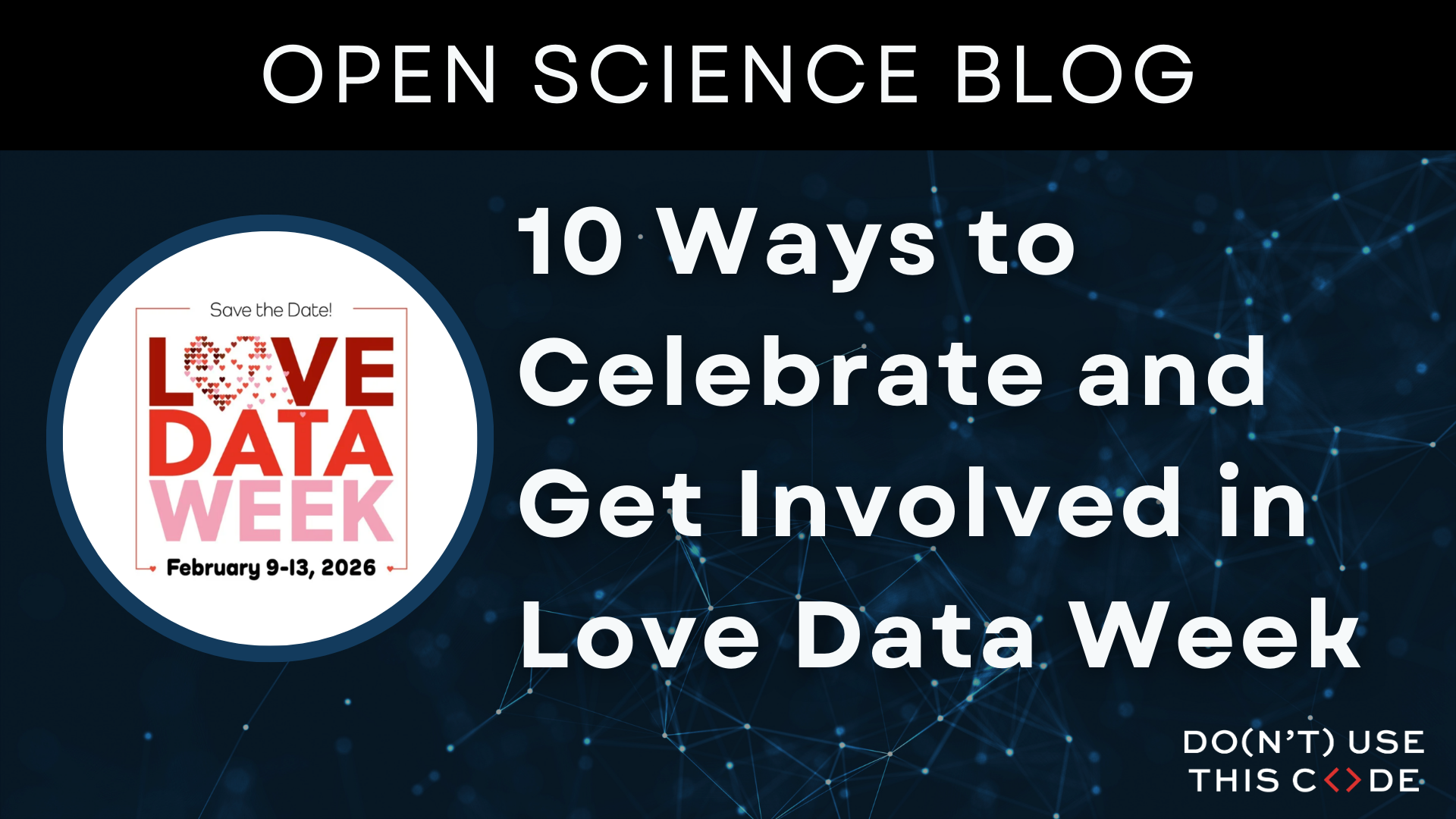
- February 11, 2026
DUTC is joining in on celebrating Love Data Week, an international week-long event exploring critical questions about data ownership and origins. This year's theme challenges us to examine where data comes from and who owns it before we use it in our work.
Whether you're a first-time participant or a returning supporter, here are 10 ways to celebrate and get involved...
Read More3 Small Steps to Big Open Science Wins in 2026

- January 14, 2026
- Sammy Chatham
As we make our resolutions and goals for 2026, what is the best way to actually “do more open science” this year?
Open science empowers researchers to design stronger studies, conduct more transparent analyses, and share their findings more effectively.
Adopting open science doesn’t have to be complicated...
Read MoreWalking the Walk: A Year of Living Open Science

- November 12, 2025
- Dr. Kelsi West
Here's the thing about teaching Open Science: you can't just talk about transparency, collaboration, and accessibility. You have to embody it. In 2025, that’s exactly what the Don’t Use This Code team did! This year, nearly 2,000 people registered for our Open Science Skills Training offerings; not because we had all the answers, but because we were willing to figure things out together, with honesty, transparency, and a bit of fun!
But this isn’t just about the numbers; it’s about the Open Science community that we are creating by...
Read MoreData for Everyone: Making Visualizations Clear, Simple, and Understandable

- August 06, 2025
- Dr. Kelsi West
You’ve spent months gathering data, running tests, and putting together what you think is a brilliant scientific graphic. You show it to your colleagues, expecting praise. Instead, you get the dreaded squint and head tilt. That universal look that says, “I don’t get it, but I won’t say anything.” I’ve both received and given that look countless times in my career!
This is a common problem in today’s data visualization world. Smart people make beautiful but confusing charts that leave readers lost. These aren’t just bad visuals; they stop communication, turn people off, and make the information harder to access, all while...
Read MoreDecode the Science Without Reading the Fine Print
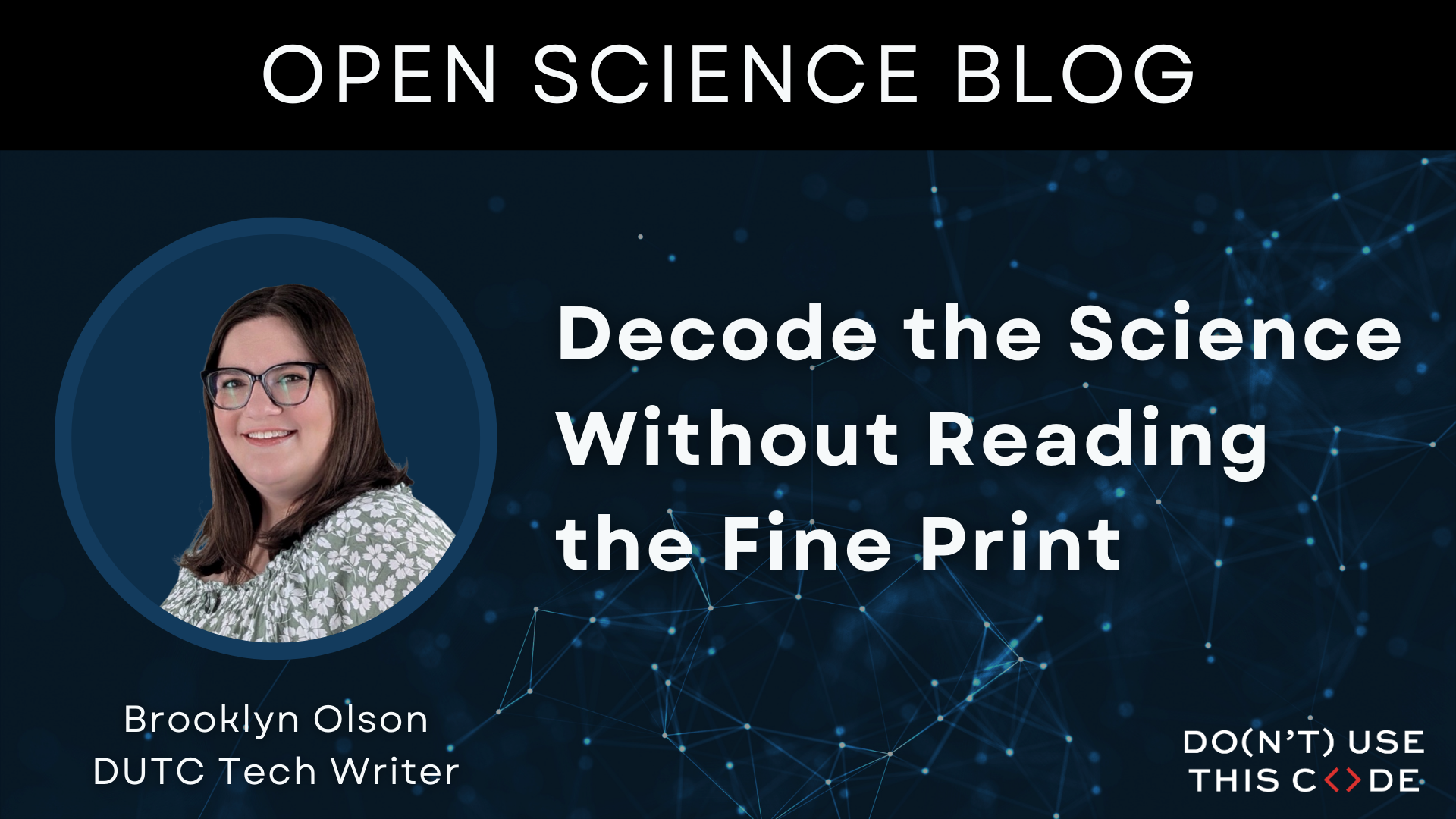
- April 23, 2025
- Brooklyn Olson
Academic articles make my eyes glaze over. I can usually push through a few sentences, maybe the full abstract if I have a bit of caffeine in me. Reading them aloud can help, but I sometimes still go into “robot mode,” saying the words on the page while my brain is making up theories about whatever book I’d rather be reading.
Let’s be honest: academic articles aren’t exactly something I’d curl up with in my comfy chair while snuggling my cat. But working as a technical writer at a company that champions open science, I’ve had to dive back into the scholarly deep end—sometimes even reading papers that evaluate other papers (yes, really).
That first plunge involved a lot of caffeine and...
Read MoreStrength in Numbers: Growing Your Academic Support System in an Open Science Era

- March 19, 2025
- Dr. Kelsi West
So, you’ve chosen the best advisor (i.e., PI, committee chair, etc.) — someone whose research and goals align with yours. That’s a huge step! (If you haven’t yet, check out my previous post about selecting an advisor!) Your advisor will play a starring role in shaping your research and day-to-day grad school experience.
But, have you ever heard the saying strength in numbers? Graduate school is no different. Your success depends not only on your advisor but also on a whole ecosystem: committee members, mentors, peers, and a strong department culture. In today's research landscape, this ecosystem is increasingly built on open science principles (e.g., sharing data, code, and methods; making research accessible; and fostering collaboration across traditional boundaries).
Read MoreReflections from Johns Hopkins University: An Open Science Perspective
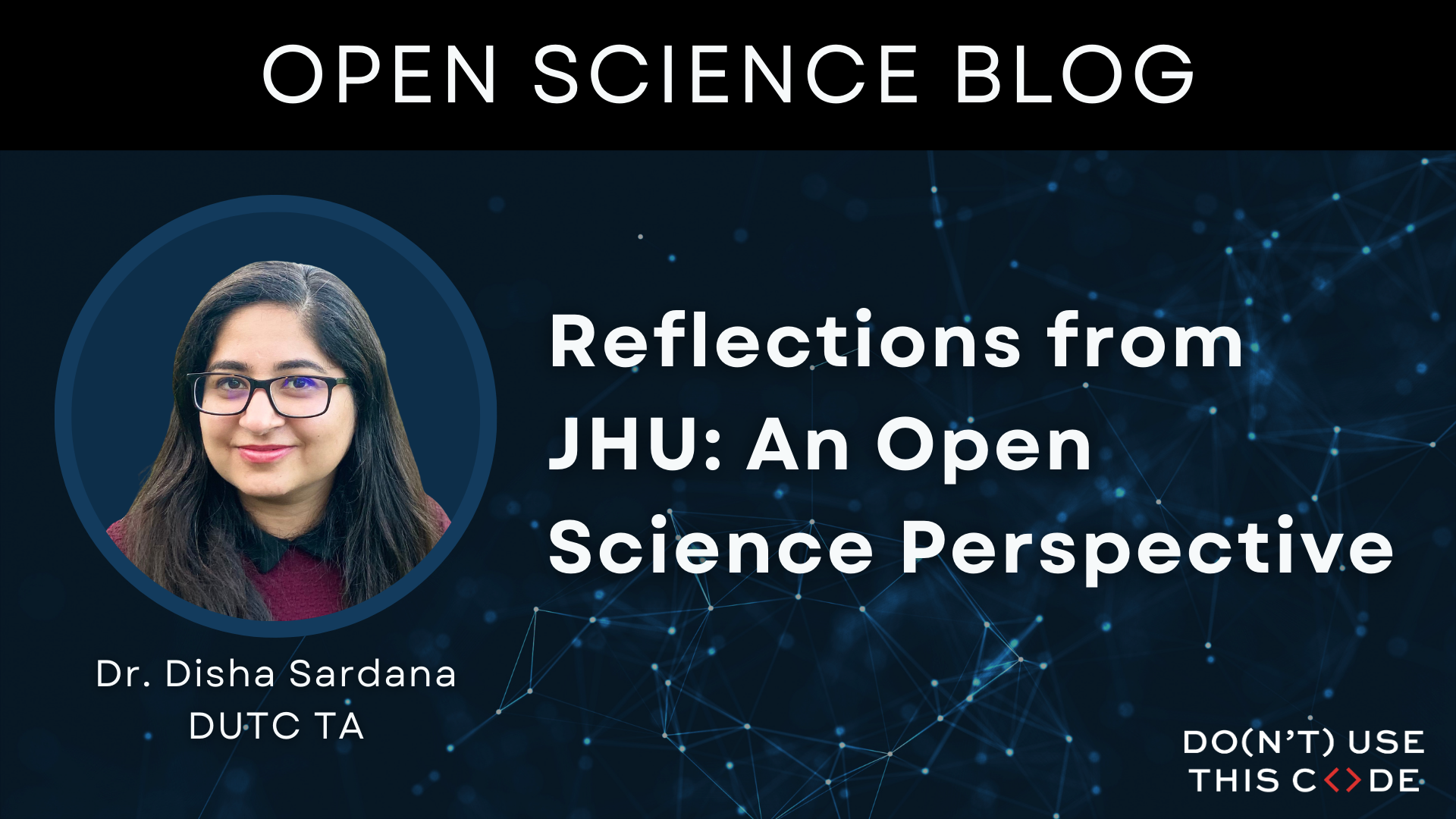
- February 19, 2025
- Dr. Disha Sardana
Recently, our team at DUTC hosted our NASA Open Science Virtual Training session with Johns Hopkins University. The event was a huge success, bringing in over a hundred registrants! Before the training began, we wanted to get to know attendees better, so we provided a pre-survey to understand their background and familiarity with open science principles. In total, 68% of survey participants pursued the training on their own, and 32% took the online course along with co-workers and/or colleagues. Well over half of them had or were pursuing graduate degrees, bringing valuable knowledge and experience from their respective fields to the training. Their disciplines spanned a wide variety of fields; we had attendees in economics, biomedical engineering, electrical engineering, biological science, environmental health science, analytical chemistry, biodesign, psychology, neuroscience, applied mathematics, library and information science, and financial engineering.
Read MoreOpen Science without the Science
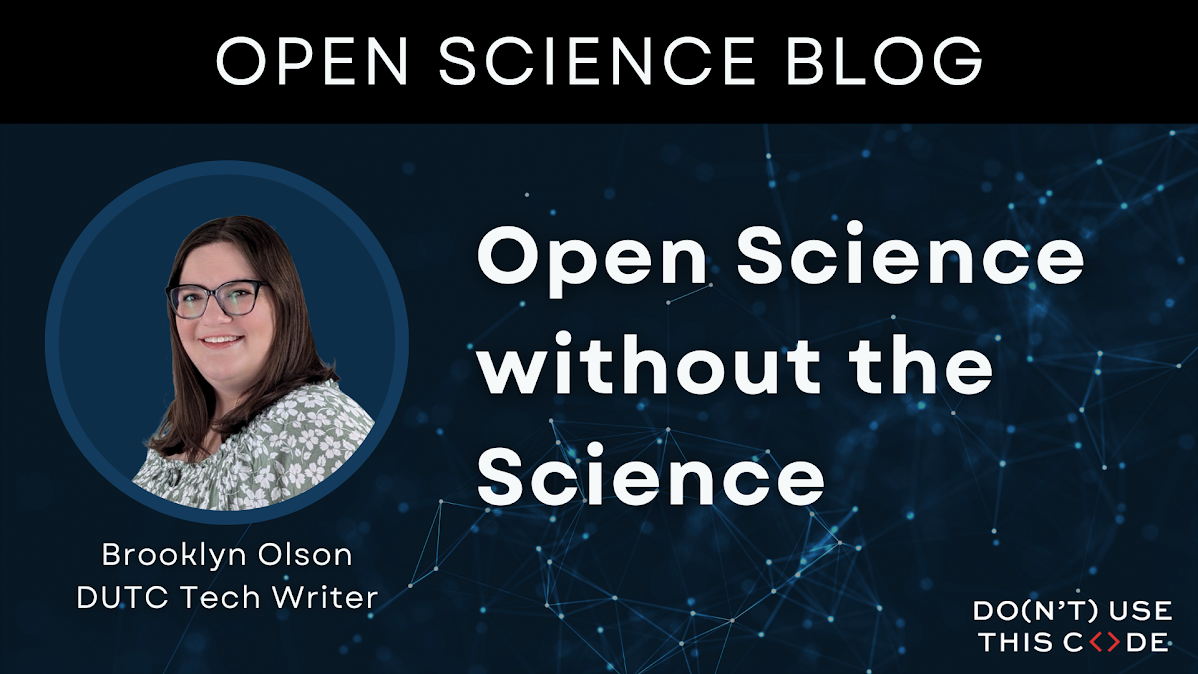
- January 29, 2025
- Brooklyn Olson
I am not a scientist. I am not a developer. Scratch engineer, analyst, and coding instructor off the list for good measure. My degree is in English with a Professional Writing emphasis. I took a couple of 101 coding classes to get a fancy IT certificate to look nice on a resume, but that's about it.
So, why have I taken nearly 20 Open Science trainings? I'll give you a hint: it's not just because I'm required to for my job. It's also not just because I enjoy them, either, although they're always the highlight of my day!
To put it simply, open science is open humanity, a way of collaboration that welcomes everyone to participate in discovery. Every time I attend the training, I take away something new about the idea that I can apply to everything from everyday conversations to community events to a technical work setting.
Read MorePlanting Your Roots: Finding the Right Grad Advisor with the Help of Open Science Values


- December 19, 2024
- Dr. Kelsi West
Congratulations—you got into a graduate program! Now what? If you’re anything like most new graduate students, you’re probably overwhelmed by the flood of information. You are thrown into instantaneous berating of what’s important; funding, classes, research expectations, publications, seminars, teaching, endless new acronyms… Insert Imposter syndrome here.
Here’s the thing: one of the most important decisions you’ll make during your graduate degree is choosing your advisor (in some programs, this role may have a different title, such as a “research mentor” or “committee chair”). This isn’t just a "boss" for the next few years—this person’s research will shape your work, their mentoring style will influence your day-to-day experience, and their name will likely follow you on your first publications and way beyond into your career (especially if you stay in academia). Your advisor will likely be one of your key references for years to come, possibly influencing your opportunities long after you graduate. Think of it as becoming a branch on their academic “family tree.” Read More
Git, GitHub, and You: How Collaborative Writing Tools Propel Open Science
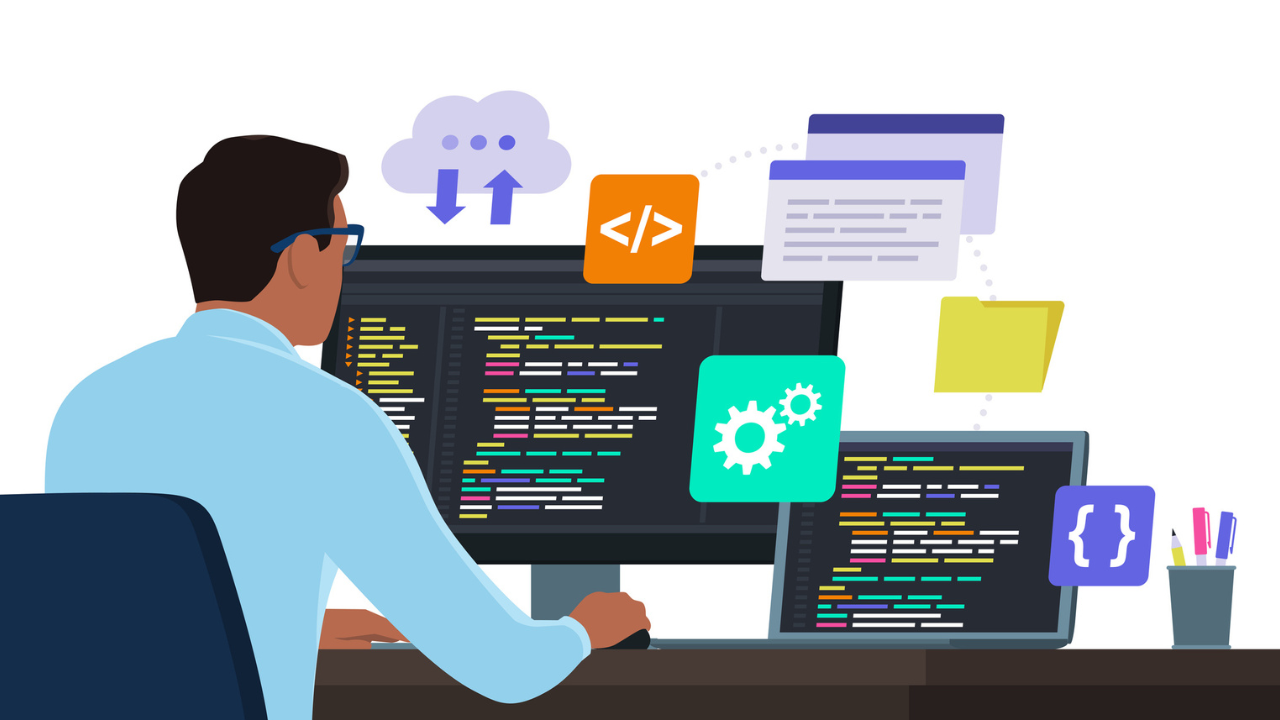
- October 07, 2024
- Brooklyn Olson
One voice can make a stunning melody, but a chorus of voices weaves soul-stirring harmonies otherwise impossible to achieve. In the same way, collaboration transforms innovative scientific ideas into meaningful, reproducible research.
NASA and the White House declared 2023 the Year of Open Science, launching Transform to Open Science (TOPS) to make scientific research more accessible, transparent, and reproducible. As part of this initiative, NASA has awarded my organization, Don’t Use This Code (DUTC), a grant in a collective effort to train 20,000 scholars through free virtual cohorts... Read More
Open Science at the Alabama Academy of Science
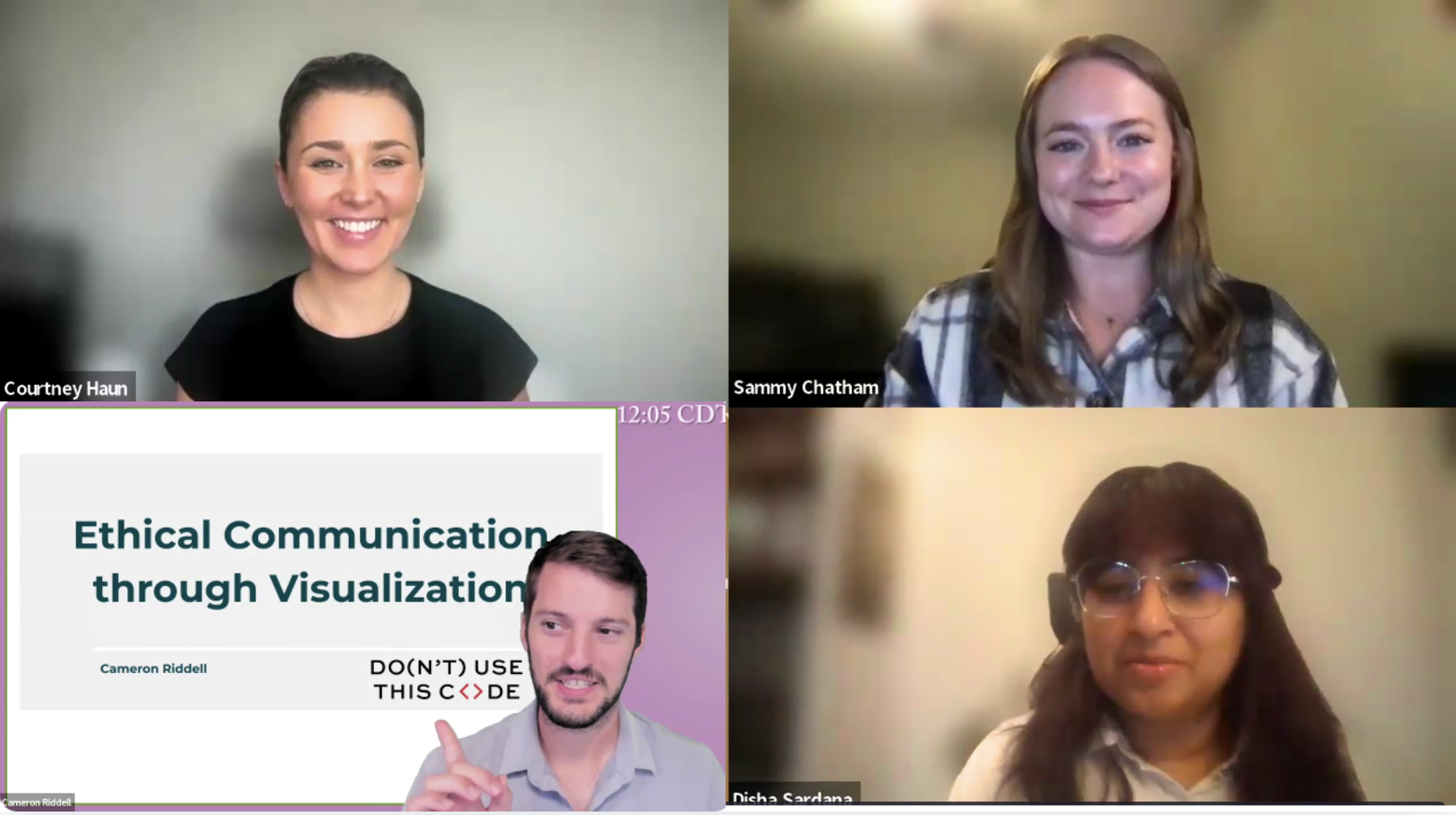
- September 13, 2024
- Sammy Chatham
With the skills gained through the DUTC NASA Open Science Skills Training, we believe the AAS will continue to inspire and equip Alabama's scientific community to embrace open, accessible, and reproducible research practices... Read More
Take Open Science Further With Us
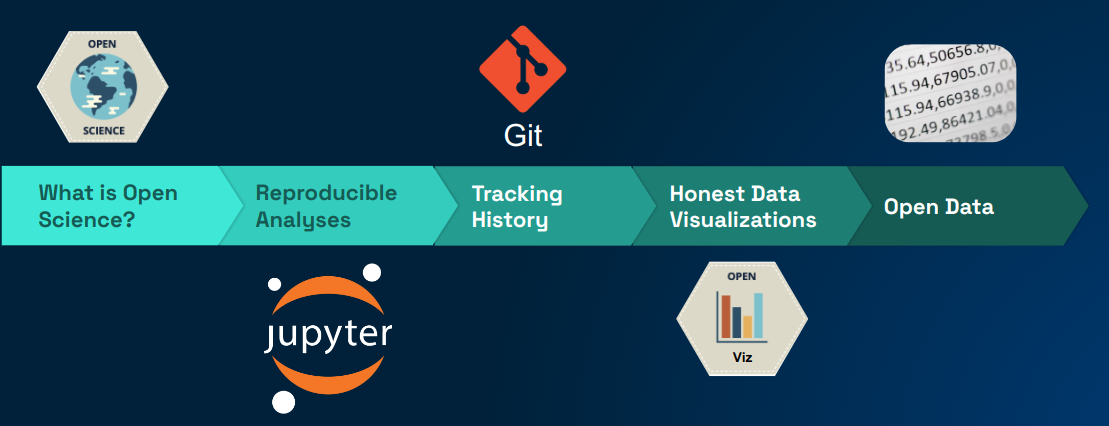
- July 31, 2024
- Dr. Courtney Haun
In addition, you will be able to connect with a broad network of like-minded researchers from many disciplines who are passionate about open science. These connections can foster fruitful collaboration and further your professional development.
This NASA certified training will cover…- What is Open Science?
- Reproducible Analysis
- Tracking History
- Honest Data
- Visualization
- Open Data